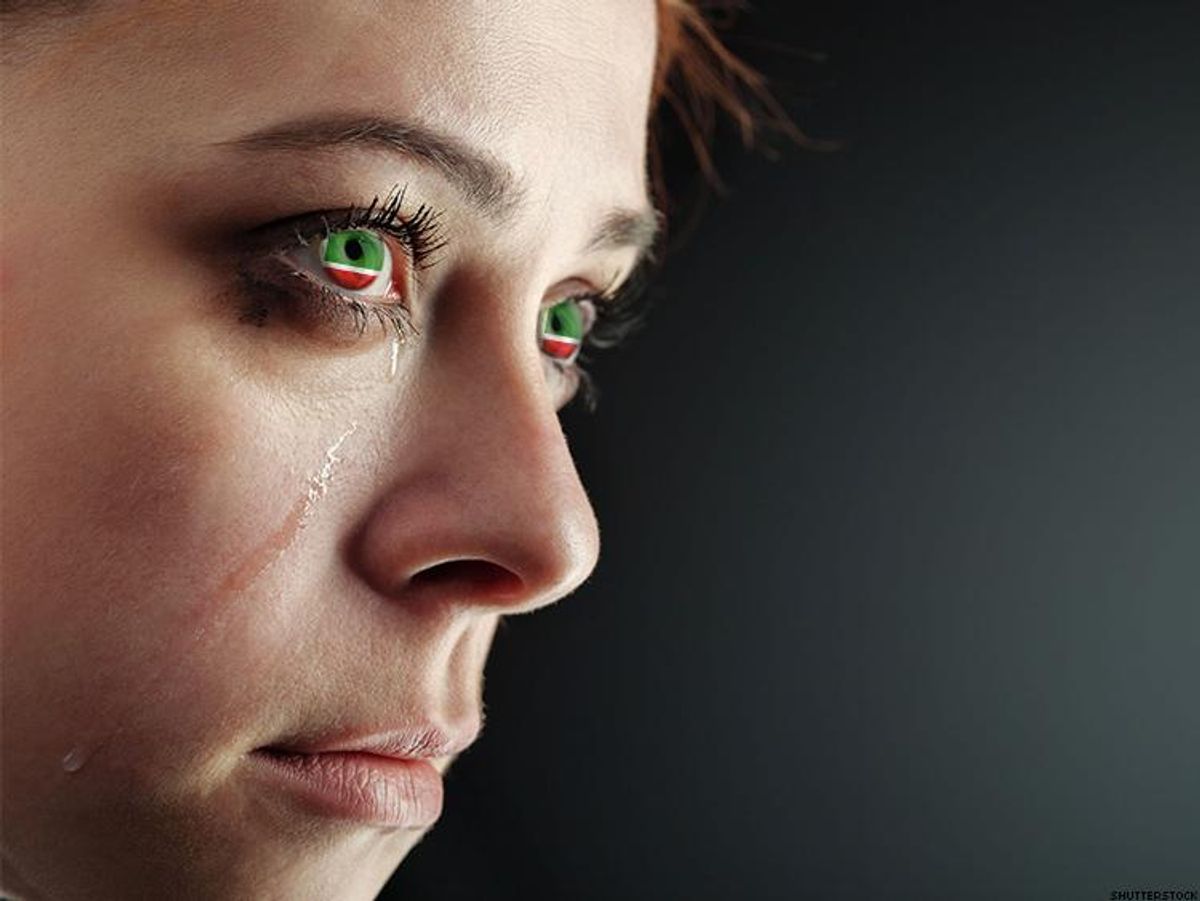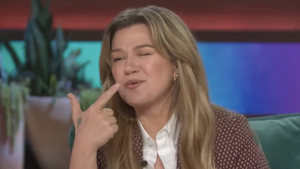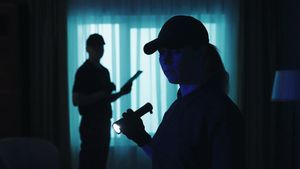All Rights reserved
By continuing to use our site, you agree to our Private Policy and Terms of Use.
June 10, 2017, was a very important day for me. I traveled to Washington, D.C., to participate for the first time in my life in a Pride parade. I felt a great responsibility vested in me as a representative of Chechnya, a victim, and a human being. As I marched, I thought about all the poor people who have fallen prey to the Chechen government with the consent of the Kremlin.
In April the Russian paper Novaya Gazeta published a report stating that the Chechen government had arrested and tortured more than a hundred gay men. At least three were murdered. Later Novaya Gazeta reported that at the end of January the Chechen authorities had murdered 56 men. Twenty-seven names were published.
As an activist and transgender woman, I'm glad that this crisis has attracted considerable (though still insufficient) attention from the American public. When I was in Washington for Pride, Human Rights First arranged meetings for me with officials in the White House, Congress, and the State Department, and I was impressed by their obvious concern.
Yet I am disappointed by the sensationalism of some of the coverage. Lost amid the lurid reports of abuse are the victims themselves: their humanity, their dignity, their human rights. And some of the stories depict the Chechen government's horrific abuse of gay men as a departure from the norm.
However, as my personal story shows, such persecution has a long history. This terrifying situation has unfolded due to the wars of Russia against Chechnya. Russian troops invaded Chechnya in 1994 when our republic declared independence, and again in 1999. As a result, Russia brought into power a repressive government with pro-Kremlin views, now headed by Ramzan Kadyrov.
Kadyrov has gained unprecedented power, which he uses to satisfy his ambitions and to persecute those who disagree with him. Some years ago, his ex-ally Movladi Busurov was shot dead for saying that Kadyrov behaves like a medieval tyrant. There are credible reports that Kadyrov has personally administered torture in his own home, with some claiming that he has peeled off the skin of his victims. Vladimir Putin has openly supported all of Kadyrov's abuses.
It was during Russia's second war on Chechnya that I became politically active. I organized a group of university and high school students called Nisso (Justice). We helped to get people out of prison, searched for the missing ones, and helped refugees and the elderly. We gave them food and clothes and repaired their houses. In response, authorities arrested me at my college and put me a secret prison. After several months, European human rights advocates helped secure my release. But the authorities still persecuted me, so I fled to Dagestan, where I stayed with relatives. Chechen authorities soon tracked me down, but with the help of people in the village, I evaded arrest, then returned to Chechnya.
After several arrests and ongoing persecution, we had to dissolve Nisso. I fled to Moscow, where I began my transition. I had to sleep in cellars, building entrances, and railway stations. It was terrifying.
In 2004, I was arrested by Russian police at my friend's house. When I showed a police officer my passport, he kicked me in the face, breaking my nose. Then police filmed me next to my passport and threatened to broadcast this video on television. By this time, I was mid-transition and knew that if this information was published in Chechnya, I and my family would be in danger. I was so desperate to avoid this situation that I tried to commit suicide by cutting my wrists.
Due to my nationality and transgender status, I couldn't get an apartment, a job, or medical care. In October 2013, I tried to get a driver's license, but was told that the law considered me schizophrenic. In 2015, I was stabbed in the streets of Moscow. I went into shock and barely remember the attack, but to this day I have trouble breathing. After I was discharged from the hospital, I moved to a different city in Russia.
In 2016, Chechen authorities found me and told me that if I didn't return and publicly declare myself a man, they would harm my family. I knew I could not go back to Chechnya -- I was at this point a woman. Instead I cut my hair, bound my chest, and took photographs and videos in which I pretended to be male in hopes that this would satisfy them. It did not, and I and my family remained under threat.
I turned to the Russian LGBT Network, which placed me in a shelter in St. Petersburg. I then went to Memorial, an organization that helped me with money, and applied for a visa to the United States. However, my visa request was denied. I decided to flee anyway, as I could not wait any longer. Before this point, I had never left Russia.
I traveled to Mexico City, but even before checking in to a hotel, I received a mysterious text informing me that I still wasn't safe, so I attempted to cross into the United States and was placed in a detention center for immigrants. Years after my first trip to a Russian prison, thousands of miles from home, I was locked up yet again. But my treatment was relatively humane, and I even developed an amicable relationship with the officers.
I have lived in Chicago for one year. I am trying to build a new life. I am grateful to have received protection, but after all the years of living in danger, I still do not feel safe. I often think of the gay men and other Chechens suffering under a brutal regime that operates with impunity.
While I don't have confidence that significant change will come to Chechnya any time soon, I believe that support from American activists and officials can help bring about a solution over the long term.
It is my fervent hope that Americans do not forget about Chechnya once this horrible, sensational story fades from the headlines.
LEYLA is a transgender woman from Chechnya who just received asylum in the United States.













































































